Configure the Process
Now we need to create and configure the Process which will generate stationery requests in PDF format based on data from our web form submission.
Create a new Process
Go to the Processes section in your Plumsail account.
Click on the Add process button.

Set the Process name. As we’re going to generate PDF stationery orders from an Excel template, select XLSX for the template type.
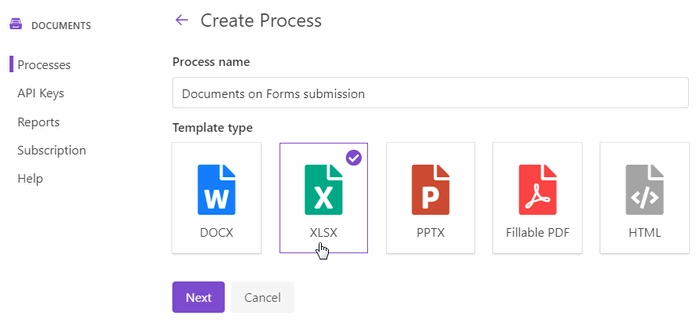
Configure a template
Once you’re done with the first step Create Process, press the Next button, and you’ll proceed to the next step – Configure Template.
It includes two substeps:
Editor;
Settings.
In Editor, you can compose the template from scratch or upload a pre-made one. It’s also possible to modify the uploaded template online.
Feel free to download an XLSX stationery order template that we have already prepared:
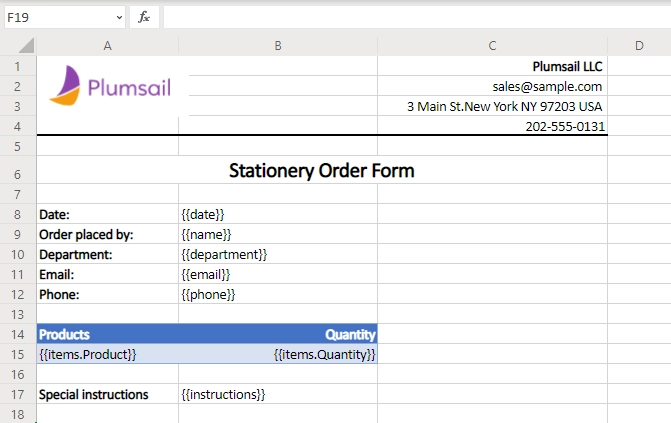
Then upload it to the process.
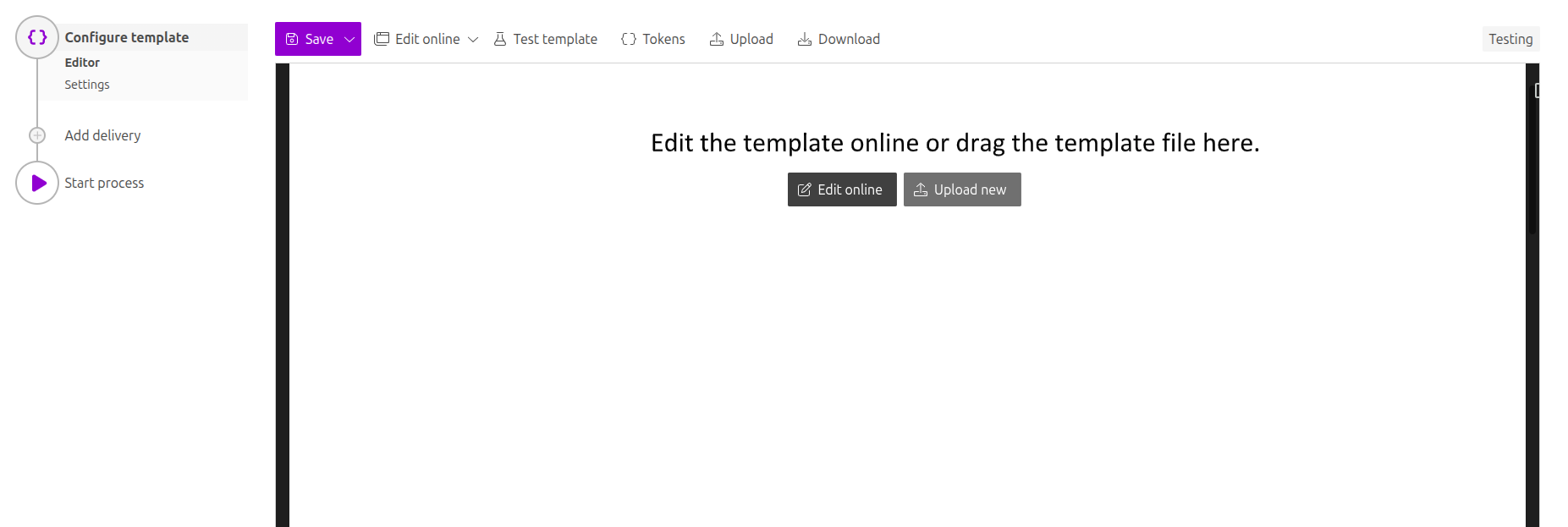
Templating syntax
When creating your own templates, mind the templating language. Plumsail Excel XLSX templates use a different approach than most other templating solutions. It uses a minimal amount of syntax to make your work done.
In short, the templating engine thinks that everything between curly {{ }} brackets is variables where it will apply your specified data.
Read this article to get familiar with the templating engine.
Test template
To check how the document will look at the end, click on the Test template button.
You will see the dialog where you can fill in the auto-generated testing form. Form fields are created based on tokens from your document template. You can adjust the look of the testing form by changing token types.
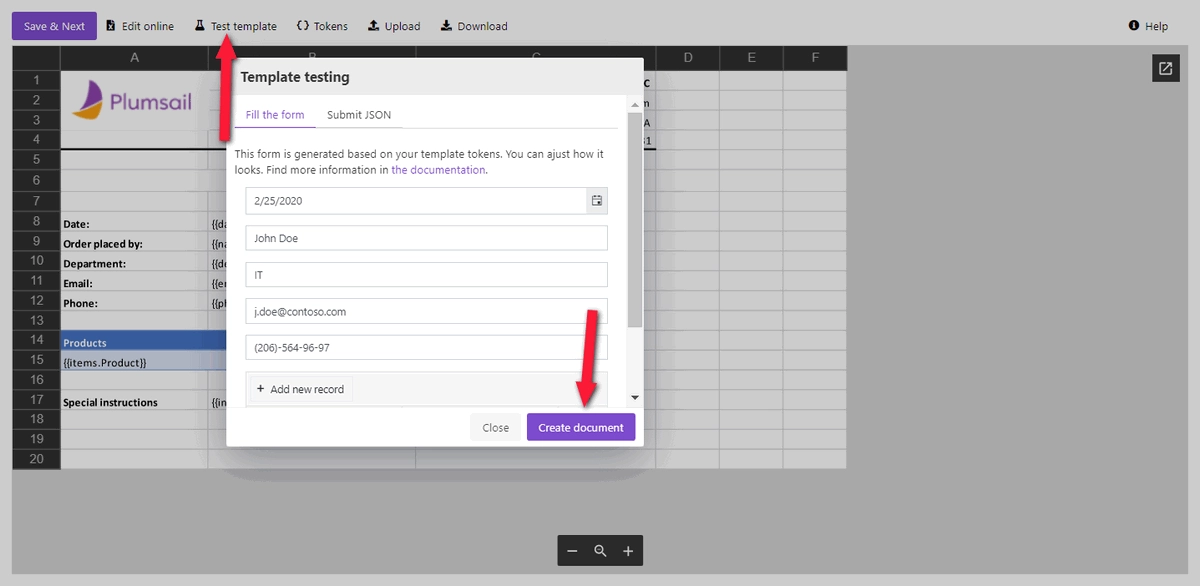
It’s testing. We’re going to apply the data from the web form to our template.
Once you’ve tested the template, press Save&Next to proceed further - to the Settings substep.
Here, please:
Switch to an active mode to remove Plumsail watermarks from resulting documents
Fill in the name of the result file
Select PDF format for the output file
Protect the result PDF if you wish
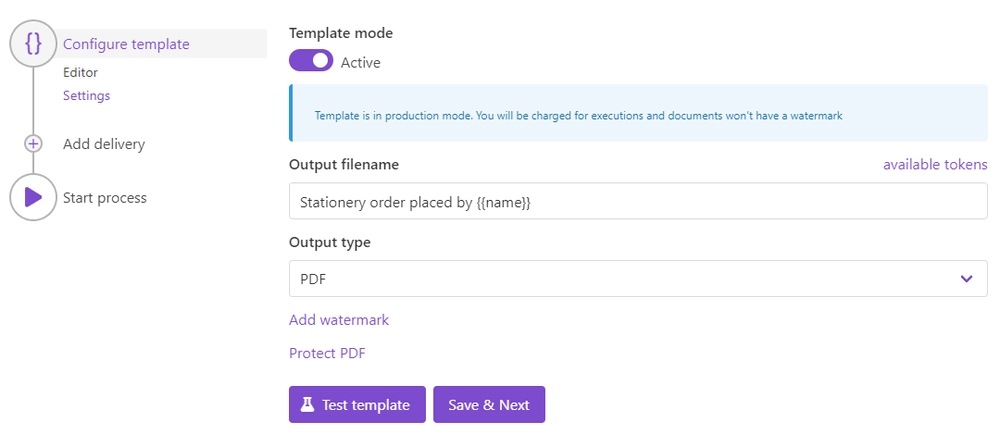
Once you’ve customized all the settings, you can test the template to see the result as we did it before.
When everything is done here, click on Save & Next to set up deliveries.
Delivery
The next step is delivery. For demonstrating purpose, we’ll store the result file in OneDrive. But there are other options.
Just set the folder’s name where the ready document will be saved.
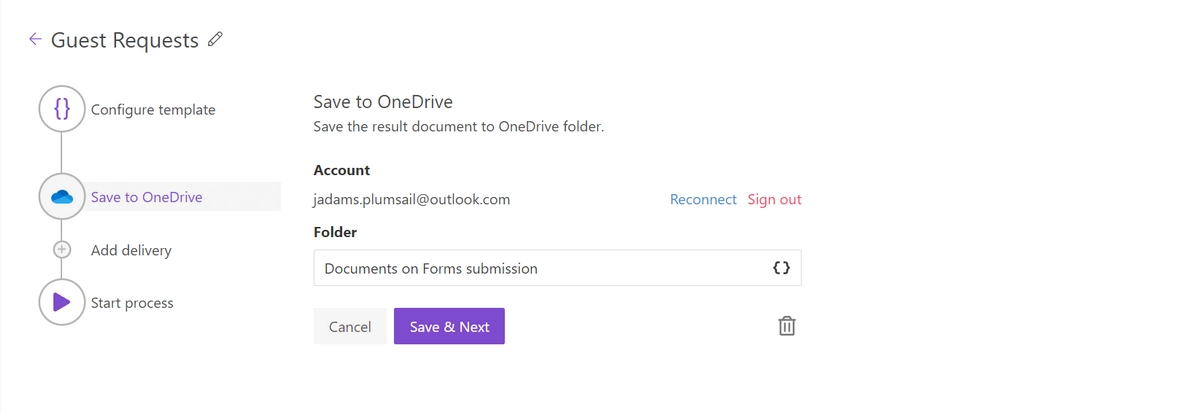
You can configure as many deliveries as you need.